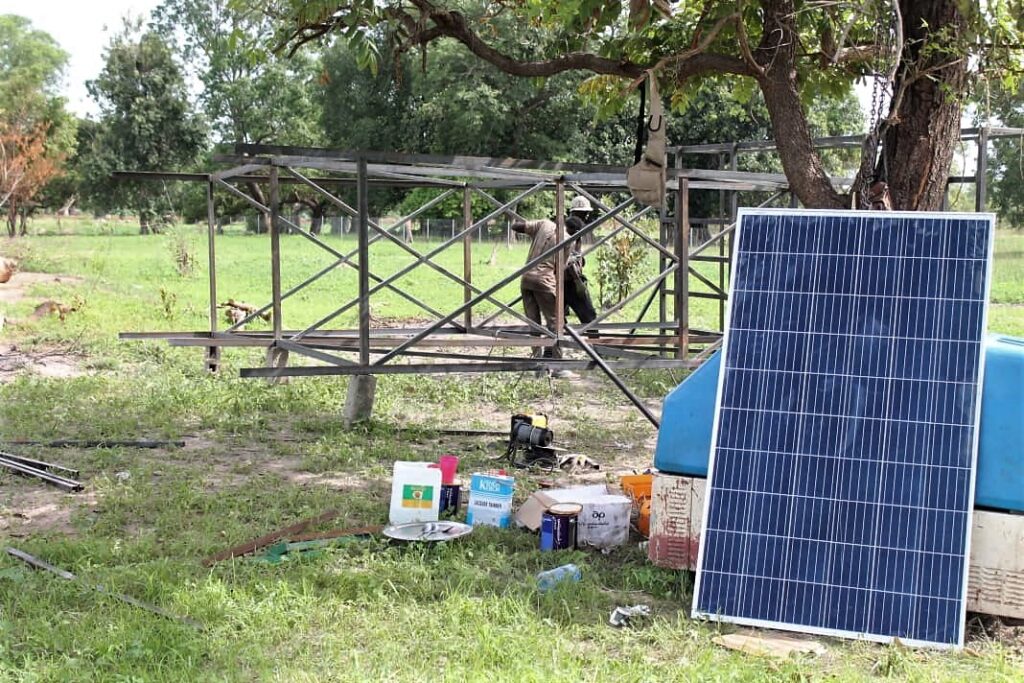
EKOenergy provides almost 700,000 € towards fighting energy poverty in 2023
For every MWh of EKOenergy-labelled energy, 0.10 € goes to EKOenergy’s Climate Fund to finance new renewable energy projects in developing countries. All supported projects make a difference in the lives of many by improving access to reliable, clean energy and contribute to the realisation of multiple Sustainable Development Goals (SDGs). For an overview of the approved projects, see the map on our Climate Fund page.
We now have finalised the selection of 15 short-term renewable energy projects that will be funded through our Climate Fund in 2023. The selected projects are located in 13 different developing countries, including India, Cambodia, Madagascar and Tanzania, and will receive a total of 482,190.00 €.
In addition to these 15 projects, we have already made the decision this year to finance a four-year project for Renewable World (313,170 € in total – 130,795 € in 2023) and to support Siemenpuu Foundation’s partners in Mali with 80,000 €.
Energy poverty is a major issue in many developing countries. Through financing new renewable energy projects for local communities, we aim to tackle the many problems that a lack of electricity access brings. By providing access to reliable and clean electricity, these projects will enable households and communities to improve their living conditions, reduce their reliance on fossil fuels, and contribute to the fight against climate change.
All projects contribute to realising multiple Sustainable Development Goals (SDGs)
All projects help to achieve a number of different SDGs and their focus varies based on the needs of local people.
Some of the selected projects focus on household electrification and lighting, which also enables the development of small-scale economic activities. For example, the GRET project in Madagascar, the HARD Balochistan project in Pakistan and the Environmental Rights Action/Friends of the Earth Nigerian project in Nigeria promote energy access for households and communities as well as for village schools and health centres. Clean energy in households is also strongly linked to SDG 3 (Health and well-being) as essential lighting is often powered by fossil fuels that highly degrade air quality.
SDG 3 is also supported by the Un Ponte Per project in north-eastern Syria, which uses solar panels to improve health centres’ cold storage facilities for medicines, as well as a project by the Centre for Community Regeneration and Development’s (CCREAD) in Cameroon that will provide electric lighting for three village health centres so that locals won’t have to provide their own firewood anymore.
Many projects are directly or indirectly linked to improving food security. For example, ICC’s (Integral Cooperation Cambodia) project in Cambodia supports the installation of solar-powered irrigation systems for small-scale farmers, and the Aga Khan Foundation’s project in India supports locals to build solar-powered flour mills, thereby supporting SDG 2 (Zero hunger).
At the same time, these projects will also improve access to clean drinking water, which is also a particular focus of the Renewable Malawi (RENAMA) project which provides clean drinking water to 8,500 students in Malawi, the OIKOS Africa project in Tanzania, and Centre for Renewable Energy and Action on Climate Change (CREACC-NG) project in Nigeria. Many of these projects also directly support local agricultural production.
Some of these projects that were selected to receive financing from EKOenergy this year include the construction of cold storage systems, for example, the projects by Practical Action, Concern Worldwide and the Energy and Resources Institute (TERI) projects in Bolivia, Liberia and India, respectively. The possibility of storing food products reduces the pressure on farmers to sell crops at low prices to traders. Cold storages also contribute directly to better food security and safety. As global warming leads to longer and more extreme heat waves, the role of cold storage systems is becoming even more important.
Green Empowerment’s project is improving the livelihoods of Ugandan beekeepers by providing them with honey processing systems that run on solar energy. In this way, the project directly contributes to achieving goals such as SDG 1 (Zero poverty) among several others.
Overall, the selection of all these new renewable energy projects is a significant step towards a more sustainable and equitable energy system. It shows that, by working together and supporting renewable energy, we can reduce energy poverty, promote economic development, and protect the planet for future generations.
Other projects financed thanks to users of EKOenergy
Descriptions of all finished and ongoing projects are available on the map on our Climate Fund page.
Thanks a lot to all sellers and users of EKOenergy-labelled renewables. None of these projects would have been possible without your commitment to EKOenergy.
Follow us on Facebook, Linkedin, Instagram, Twitter, YouTube or Xing for regular updates about the progress of the ongoing projects.

Published: 16 June 2023

